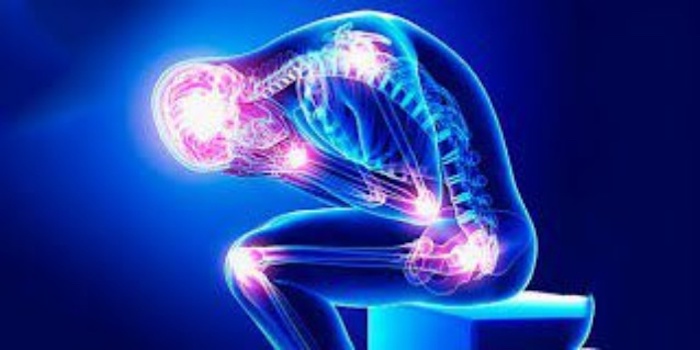
Diagnosis of Chronic Pain Syndrome
The first thing your doctor will do is take a thorough medical history. You’ll be asked things like:
- when your pain started
- what it feels like (for example, burning and sharp or dull and aching)
- where it’s located
- if anything makes it better or worse
Because certain conditions can lead to chronic pain syndrome, your doctor may order imaging tests to determine if there is joint or tissue damage that may explain your pain. For example, your doctor may order an MRI to determine if your pain is stemming from a herniated disk, an X-ray to see if you have osteoarthritis or a blood test to check for rheumatoid arthritis.
Without being able to find a direct cause of your pain — or if they think the pain is disproportionate to the trigger — some doctors will dismiss your symptoms or tell you they are “all in your head.” It’s hard to be proactive when you don’t feel well, but keep investigating alternatives. If need be, talk to your doctor about what you think is causing your pain and ask for the appropriate tests and treatments. Working as a team is your best shot at finding relief.
Treatment for Chronic Pain Syndrome
Chronic pain can be perplexing, but it is treatable. Some options include:
Medical
- Drugs to relieve pain. These can be anti-inflammatories, steroids, muscle relaxers, antidepressants that also have pain-relieving qualities, and, in severe cases, opioids (this is the last resort).
- Physical therapy to increase flexibility and range of motion.
- Nerve blocks to interrupt pain signals.
- Psychological/behavior therapy. While they may not have a big impact on pain, some psychological therapies can have a positive effect on mood. For example, cognitive behavior therapy (a type of talk therapy that helps you reframe negative thinking) has been shown to be effective in boosting mood, even up to a year after treatment ends. In another study, biofeedback was beneficial in reducing muscle tension and depression and improving coping with chronic pain. Biofeedback is a type of therapy that teaches you to use your mind to control bodily reactions, like rapid breathing.
Alternative
- Acupuncture. According to an analysis of studies, acupuncture reduced pain levels in 50 percent of those who tried it, compared with a 30 percent pain reduction in those who did not receive acupuncture.
- Hypnosis. Research reports that 71 percent of subjects with irritable bowel syndrome (IBS) reported much-improved symptoms after a course of hypnosis. These effects extended up to five years post-treatment.
- Yoga. Because it helps to relax muscles, encourages deep, restorative breathing and increases mindfulness, research shows that yoga can be beneficial in reducing the depression and anxiety that comes with chronic pain, thus improving your quality of life.
Coping with Chronic Pain Syndrome
When you don’t feel well, managing chronic pain can be difficult. Emotional stress can make the pain even worse. It can be hard to work, and you may consider the possibility of receiving disability benefits. However, research this carefully. The Social Security Administration has very specific requirements you must meet before benefits are paid out.
In the meantime, the American Psychological Association suggests these tips for dealing with chronic pain:
- Focus on what’s positive in your life.
- Be engaged. Don’t retreat from family and friends or activities you enjoy and can still perform.
- Participate in support groups. Your doctor or local hospital may be able to refer you to one.
- Seek help, both psychological and physical. And remember, if you feel your doctors are dismissive of your pain, keep searching. Compassionate health professionals are out there. Ask friends for recommendations and contact support groups, health organizations dedicated to a particular disorder, and local hospitals for referrals.
Precision Pain Care and Rehabilitation has two convenient locations in Richmond Hill – Queens and New Hyde Park – Long Island. Call the Richmond Hill office at (718) 215-1888, or (516) 419-4480 for Long Island office, to arrange an appointment with our Interventional Pain Management Specialist, Dr. Jeffrey Chacko.













